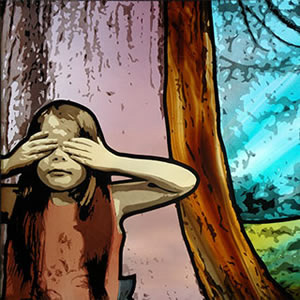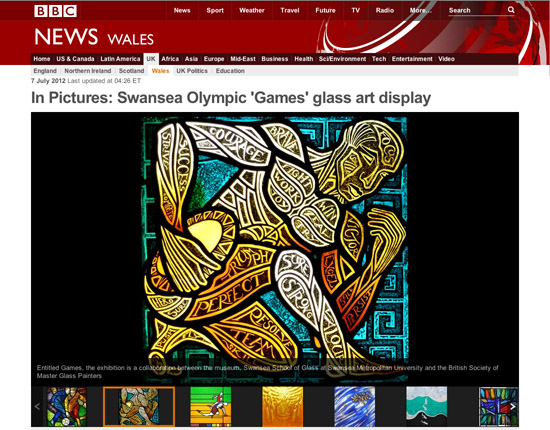August 13, 2012
Printing Reflectance Functions
(via BoingBoing, then the University of Santa Cruz website and finally to the Printing Reflectance Functions webpage)
An experimental process where a 3D object is scanned in a special manner and printed on special dimpled paper, allowing for a unique 3D illusion, where the 3D effect reacts to a live light source.
All very scientific and researchy, as it's from a paper presented at SIGGRAPH 2012, but could it have any application to flat glass art? Maybe not, but interesting to think about it. How might this work if the light is at least partially transmitted, rather than just reflected? How might some degree of translucency alter the effect, perhaps even enhance it?
August 06, 2012
The 2012 Olympics, Games, and Glass Art - part 1
A slideshow from the BBC Wales website - In Pictures: Swansea Olympic 'Games' glass art display
This is related to the exhibit Games, a glass art exhibit currently at the National Waterfront Museum in Swansea, Wales, UK. This is another in a string of excellent group exhibitions from the the British Society of Master Glass Painters.
I'm not a big sports enthusiast, but I like to see the occasional themed exhibit like this. I only wish there was a more comprehensive website dedicated to the exhibit, with all the pieces shown and artists identified and background info given, etc. I haven't found much about it on my own. On searching I only found a website for a UK stained glass artist named Dave Griffin and his panel for Games, called Hide and Seek, which I like.

This turns out to be only one in a series of glass art exhibits centered around the 2012 Olympic Games. More on that and other aspects of this coming in part 2...
